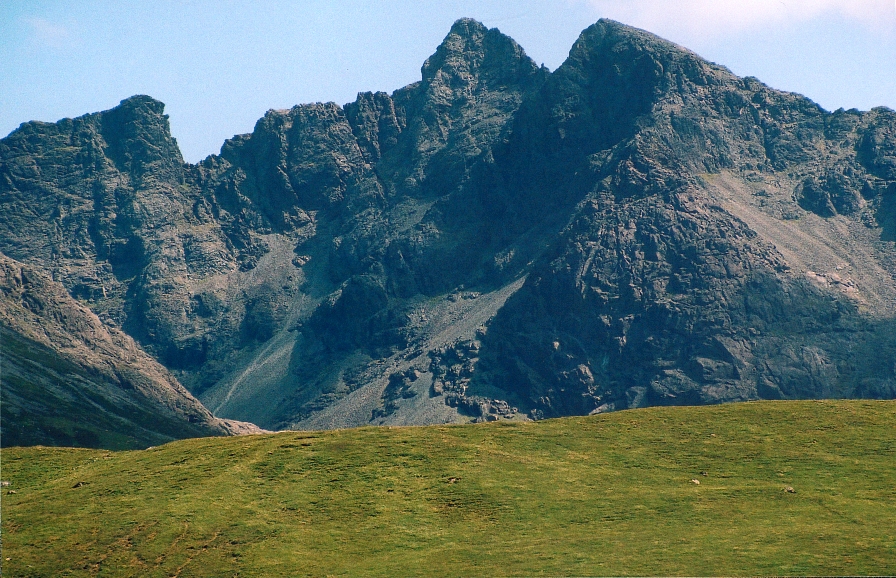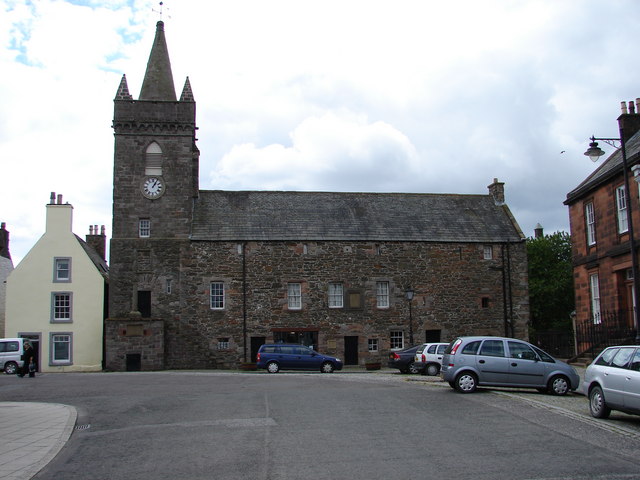|
Alexander Nicolson
Alexander Nicolson (1827–1893) was a Scottish lawyer and man of letters, known as a Gaelic scholar and sheriff-substitute of Kirkcudbright and Greenock, and as a pioneer of mountain climbing in Scotland. Life The son of Malcolm Nicolson, he was born at Husabost in Skye on 27 September 1827. With an early education from tutors, he entered Edinburgh University after the death of his father, intending to study for the ministry of the Free Church of Scotland. He graduated B.A. in 1850, and later in 1859 received an honorary degree of M.A. In the absence through illness of Sir William Hamilton, Nicolson as his assistant lectured for his class on logic, and for two years he performed a similar service for Patrick Campbell Macdougall in the class of moral philosophy. Giving up theology while at the Free Church College, Nicholson for some time worked as one of the sub-editors of the eighth edition of the Encyclopædia Britannica. He moved on, to the staff of the ''Edinburgh Guard ... [...More Info...] [...Related Items...] OR: [Wikipedia] [Google] [Baidu] |
Kirkcudbright
Kirkcudbright ( ; sco, Kirkcoubrie; gd, Cille Chùithbeirt) is a town, parish and a Royal Burgh from 1455 in Kirkcudbrightshire, of which it is traditionally the county town, within Dumfries and Galloway, Scotland. The town lies southwest of Castle Douglas and Dalbeattie at the mouth of the River Dee, around from the Irish Sea. History An early rendition of the name of the town was Kilcudbrit; this derives from the Gaelic ''Cille Chuithbeirt'' meaning "chapel of Cuthbert", the saint whose mortal remains were kept at the town between their exhumation at Lindisfarne and reinterment at Chester-le-Street. John Spottiswoode, in his account of religious houses in Scotland, mentions that the Franciscans, or Grey Friars, had been established at Kirkcudbright from the 12th century. John Balliol was in possession of the ancient castle at Castledykes in the late 13th century and Edward I of England is said to have stayed here in 1300 during his war against Scotland. In 1455 Kirkcudb ... [...More Info...] [...Related Items...] OR: [Wikipedia] [Google] [Baidu] |
Blackwood's Magazine
''Blackwood's Magazine'' was a British magazine and miscellany printed between 1817 and 1980. It was founded by the publisher William Blackwood and was originally called the ''Edinburgh Monthly Magazine''. The first number appeared in April 1817 under the editorship of Thomas Pringle and James Cleghorn. The journal was unsuccessful and Blackwood fired Pringle and Cleghorn and relaunched the journal as ''Blackwood's Edinburgh Magazine'' under his own editorship. The journal eventually adopted the shorter name and from the relaunch often referred to itself as ''Maga''. The title page bore the image of George Buchanan, a 16th-century Scottish historian, religious and political thinker. Description ''Blackwood's'' was conceived as a rival to the Whig-supporting '' Edinburgh Review.'' Compared to the rather staid tone of ''The Quarterly Review'', the other main Tory work, ''Maga'' was ferocious and combative. This is due primarily to the work of its principal writer John Wilson, who ... [...More Info...] [...Related Items...] OR: [Wikipedia] [Google] [Baidu] |
Macmillan's Magazine
''Macmillan's Magazine'' was a monthly British magazine from 1859 to 1907 published by Alexander Macmillan (publisher), Alexander Macmillan. The magazine was a literary magazine, literary periodical that published fiction and non-fiction works from primarily British authors. Thomas Hughes had convinced Macmillan to found the magazine. The first editor was David Masson. In 1868, David Masson resigned as editor of ''Macmillan's Magazine'' and left London to become Professor of English Literature at Edinburgh University. Alexander Macmillan appointed George Grove, who remained in this post for 15 years, becoming also a general literary adviser to the publisher. In its first decade of existence, Frederick Denison Maurice was a prolific contributor. References Further reading *) External linksComplete issues of Macmillan's Magazineat Internet Archive.''Macmillan's Magazine'', hathitrust.org 1859 establishments in the United Kingdom 1907 disestablishments in the United Kingdom ... [...More Info...] [...Related Items...] OR: [Wikipedia] [Google] [Baidu] |
Good Words
''Good Words'' was a 19th-century monthly periodical established in the United Kingdom in 1860 by the Scottish publisher Alexander Strahan. Its first editor was Norman Macleod. After his death in 1872, it was edited by his brother, Donald Macleod, though there is some evidence that the publishing was taken over at this time by W. Isbister & Co. Princeton University. Intended readership and content ''Good Words'' was directed at and nonconformists, particularly of the lower middle classes. It included overtly religious material, but also fiction and non-fiction artic ...[...More Info...] [...Related Items...] OR: [Wikipedia] [Google] [Baidu] |
Walter Chalmers Smith
Walter Chalmers Smith (5 December 1824 – 19 September 1908), was a hymnist, author, poet and minister of the Free Church of Scotland, chiefly remembered for his hymn "Immortal, Invisible, God Only Wise". In 1893 he served as Moderator of the General Assembly for the Free Church of Scotland. He attained considerable reputation as a poet. Some of these works were written under the names of Orwell or Hermann Kunst. Early life and education He was born in Aberdeen on 5 December 1824, the son of Walter Smith, a cabinet-maker living at 16 Blackfriars Street, by his wife Barbara Milne He was educated at the grammar school, Aberdeen, and at Marischal College, which he entered at the age of thirteen, graduating M.A. in 1841. His original intention was to adopt law as his profession, but under the influence of Dr. Chalmers he entered the New College, Edinburgh, to study for the ministry of the Free Church of Scotland. Church ministries In 1850 he was ordained pastor of the Free (Scot ... [...More Info...] [...Related Items...] OR: [Wikipedia] [Google] [Baidu] |
Donald Macintosh
Donald Macintosh (1743–1808) was a Scottish clergyman, a nonjuror of the Scottish Episcopal Church, known as a scholar of Scottish Gaelic. Life Born at Orchilmore, near Killiecrankie, Perthshire, Macintosh was son of a cooper and crofter. After attending the parish school, and acting for some time as a teacher, he went to Edinburgh. In 1774 he was acting as one of Peter Williamson's penny postmen; he next found employment as a copying clerk, and was subsequently tutor in the family of Stewart of Gairntully. For some years from 1785 he was employed in the office of Mr. Davidson, deputy-keeper of the signet and crown agent. On 30 November 1786 Macintosh was elected to the honorary office of clerk for the Gaelic language to the Society of Antiquaries of Scotland, and held it until 1789. In 1789 James Brown, the sole representative of the nonjuring episcopal clergy of Scotland, made Macintosh as his successor, ordaining him deacon in June 1789, and later priest. Macintosh appears ... [...More Info...] [...Related Items...] OR: [Wikipedia] [Google] [Baidu] |
Society In Scotland For Propagating Christian Knowledge
The Society for Promoting Christian Knowledge (SPCK) is a UK-based Christian charity. Founded in 1698 by Thomas Bray, it has worked for over 300 years to increase awareness of the Christian faith in the UK and across the world. The SPCK is the oldest Anglican mission organisation in the world, though it is now more ecumenical in outlook and publishes books for a wide range of Christian denominations. It is currently the leading publisher of Christian books in the United Kingdom and the third oldest independent publisher in the UK. Mission The SPCK has a vision of a world in which everyone is transformed by Christian knowledge. Its mission is to lead the way in creating books and resources that help everyone to make sense of faith. Education has always been a core part of SPCK's mission. History Foundation On 8 March 1698, Rev. Thomas Bray met a small group of friends, including Sir Humphrey Mackworth, Colonel Maynard Colchester, Lord Guilford and John Hooke at Lincoln's ... [...More Info...] [...Related Items...] OR: [Wikipedia] [Google] [Baidu] |
Gaelic Bible
The New Testament was first published in Scottish Gaelic in 1767 and the whole Bible (''Am Bìoball Gàidhlig'') was first published in 1801. Prior to these, Gaels in Scotland had used translations into Irish. Book of Common Order The ''Book of Common Order'' was translated into Scottish Gaelic by Séon Carsuel (John Carswell), Bishop of the Isles, and printed in 1567. This is considered the first printed book in Scottish Gaelic though the language resembles classical Irish. Dugald Campbell of Knapdale produced a manuscript translation of the Old Testament in 1673, but it was never published. James Kirkwood (1650-1709) promoted Gaelic education and attempted to provide a version of William Bedell's Bible translations into Irish, edited by his friend Robert Kirk (1644–1692), Episcopal minister of Balquhidder and later of Aberfoyle, author of ''The Secret Commonwealth of Elves, Fauns and Fairies'', which failed, though he did succeed in publishing a Psalter in Gaelic (1684). Soc ... [...More Info...] [...Related Items...] OR: [Wikipedia] [Google] [Baidu] |
Scottish Gaelic
Scottish Gaelic ( gd, Gàidhlig ), also known as Scots Gaelic and Gaelic, is a Goidelic language (in the Celtic branch of the Indo-European language family) native to the Gaels of Scotland. As a Goidelic language, Scottish Gaelic, as well as both Irish and Manx, developed out of Old Irish. It became a distinct spoken language sometime in the 13th century in the Middle Irish period, although a common literary language was shared by the Gaels of both Ireland and Scotland until well into the 17th century. Most of modern Scotland was once Gaelic-speaking, as evidenced especially by Gaelic-language place names. In the 2011 census of Scotland, 57,375 people (1.1% of the Scottish population aged over 3 years old) reported being able to speak Gaelic, 1,275 fewer than in 2001. The highest percentages of Gaelic speakers were in the Outer Hebrides. Nevertheless, there is a language revival, and the number of speakers of the language under age 20 did not decrease between the 2001 and ... [...More Info...] [...Related Items...] OR: [Wikipedia] [Google] [Baidu] |
Scottish Mountaineering Club
Established in 1889, the Scottish Mountaineering Club is the leading club for climbing and mountaineering in Scotland. History The Scottish Mountaineering Club (SMC) was formed in 1889 as Scotland’s national club and the initial membership of a hundred was very much a cross section of the ‘great and the good’ of Scottish society, many of whom had an interest in mountains and mountaineering, without necessarily actually being mountaineers. The founder-member who is now most well known is Hugh Munro, who catalogued the distinct 3000 foot mountains of Scotland, now known as “ The Munros”, and “Munro Baggers” are people who focus on climbing them all. The SMC keeps a list of those who wish to record their ‘compleation’ of the Munros and, at the time of writing in 2021, approximately 6,600 people have “compleated”. Membership The SMC consists of experienced and competent climbers and mountaineers, both men and women, who have a commitment to climbing in Scotland ... [...More Info...] [...Related Items...] OR: [Wikipedia] [Google] [Baidu] |


